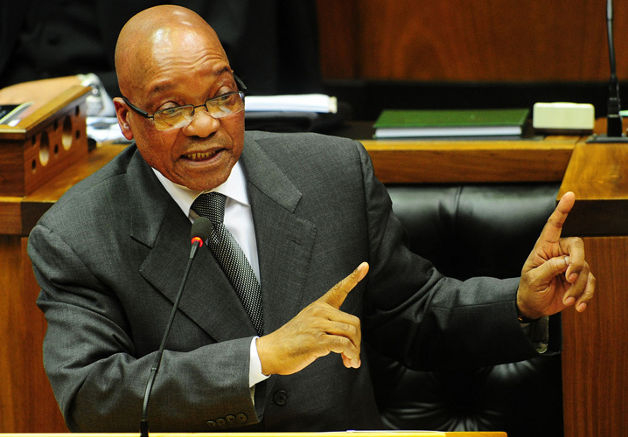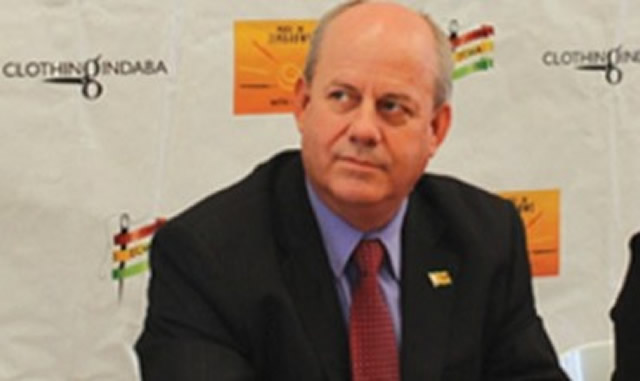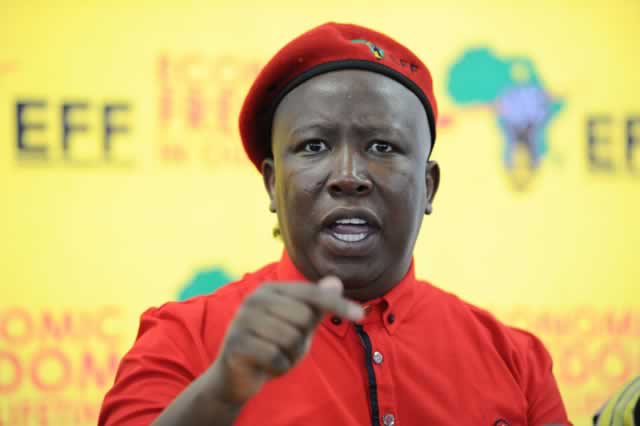Tribalism: The scourge of Africa

Reason Wafawarova on Thursday
When I followed the debate about remarks attributed to President Mugabe in regards to the Kalanga people, I was compelled to search for the video clip, so I could get a better understanding of what he exactly said.What I heard was a man talking about a stereotype he grew up hearing during the colonial era, a stereotype many Zimbabwean adults would confirm having heard of at one time or another, regardless of what they might have thought about it.
But obviously President Robert Mugabe is not your average ordinary Zimbabwean adult, so the media reaction to his statement is somewhat expected in a context.
Like every other stereotype or prejudice, facts and truth matter very little, and rationality is also not essential.
President Mugabe seemed to recall these colonial stereotypes in the context of the xenophobic disturbances that rocked South Africa a few weeks ago, and essentially what he intended to illustrate was that his idea of outward migration of Zimbabweans into South Africa was mainly a cause bordering on futility, where people without hope in themselves or their environment have dreamed of a glorious life across the border, only to discover that life in South Africa is not that rosy, and then sometimes resort to petty crime. Quite an understandable analogy, given the 4000 criminals Zimbabwe contributes to South Africa’s prison population.
The Government has already issued an official response over what the President said through Minister Jonathan Moyo, its spokesperson, and he has largely blamed the media for sensationalism — capitalising on President Mugabe’s alleged utterances to whip up tribal emotions not only against the person of President Mugabe, but also trying to institutionalise his utterances as reflective of his governing capacities, and indeed, as those of his ZANU-PF party.
It is quite sad that the media started targeting prominent people of Kalanga descent for commentary on the matter, and clearly the intention was to entertain only the angry ones, and to deride and demonise those who failed to display enough wrath against President Mugabe, like Simon Khaya Moyo.
I would have loved to be contacted too on my thoughts about those utterances, and I do not think I need to be of Kalanga descent for the media to be interested in seeking my opinion.
I believe many other people outside the Kalanga tribe would perhaps feel the same.
It is quite dangerous that in this day and age we still have a media driven by narrow tribal agendas.
Tribalism in Africa is a symbol of the continent’s divided soul, and this has been like that since the dawn of independent states in the early 60s.
It is the most discouraging example of a profound impasse to the development of post-colonial Africa.
Tribalism is the clash between peace and unrest, the clash between unity and division, the divide between tribe and nation, the clash between tradition and change, the bane between fact and aspiration, and indeed it is the clash between politics and rationality.
The nationhood of Zimbabwe is being sacrificed on the alter of tribal identities, and important developmental change has been stalled in the name of preserving tradition.
Tribal aspiration has often sidelined important facts, and this is precisely why the facts around the alleged utterances of President Mugabe do not at all matter to those driven by the need to score important tribal goals.
To them this is the time to politically assault a hated opponent, and objectivity is not part of the game.
For political expediency we have seen opposition parties spinning the said utterances in a manner that easily assaults rationality and objectivity, in the process sacrificing political maturity to win cheap political scores.
Obert Gutu of the beleaguered MDC-T even had the temerity to demand the resignation of President Mugabe; and anyone that knows ZANU-PF from a distance however long will know that such a call is not only futile and infantile, but also hopelessly senseless. To his credit, Gutu managed to entertain quite a number of excitable media practitioners, especially those driven by inexorable tribal motives.
His pack of futilities received significant coverage, and most likely Gutu was impressed.
It is really sad to look at Africa today, seeing a billion people tenaciously loyal to primitive ideas of this narrow sense of belonging to some archaic traditional subgroups. Frankly speaking our tribal subgroups represent a history of failure and subjugation, and they are essentially no solution in themselves to the social and economic upheavals challenging the continent.
What have we achieved through this unbridled loyalty to tribal identities? We had the Biafra war, the Rwanda genocide, the Burundi genocide of 1972 and 1988, many other civil wars, the endless tribal fighting in the Congo, and of late the senseless xenophobic killings in South Africa.
We have tribalism on the one hand, and we have nationalism on the other. How can we hope to create through nationalism modern states that will lead us to affluence and power when we carry in our skulls little tribal minds?
Africa needs to unify divisive tribes if the continent is ever going to prosper economically. It is only Africa that has roundly failed to achieve the Millennium Development Goals that were targeted for 2015, and mainly this has been because of our limited way of thinking.
President Jacob Zuma was describing this false expectation of instant progress by South Africans, something that happened in literally every African country after independence. Instead of looking forward to building our post-colonial states, themselves an unfortunate creation of the colonial legacy, what we have seen instead are tribal-minded people inciting unrest and power drives between rival tribes. The politics of Rwanda and Burundi are quite appalling in this regard.
Tribalism is not only the black man’s burden; it is also the grounding of his whole being, and that is the greatest problem we have on the continent.
Every black man, even the one that works for Jesus Christ, or the most elegant executive in a savvy suit, is a member of one of the 6000 tribes on the continent, and he is jealously aware of it.
He derives his identity from the tribe, and some even narrow it down to clans and totems within the tribe. Loyalty is directed towards fellow tribesman, and that is why the continent is literally run on nepotism terms.
When I ran the placement desk for the employment of National Youth Service graduates in Zimbabwe between 2001 and 2004, one of the ministers who hailed from the same province as myself clashed with me on numerous occasions. She would repeatedly remind me that the position I occupied was in essence Masvingo’s turn to employ youths of Karanga descent.
I would not have any of that, and for my troubles I had to endure all sorts of political persecution, threats, ridicule, and at one time I was humiliated at a rally in Gutu district, with the minister telling the crowd that they were looking right in front of them at a “servant of Zezurus” who was so happy to work with “Zezurus” in Harare that he had totally forgotten where he came from, in fact forgotten his tribal identity. The people obliged by questioning what was wrong with me, clearly failing to understand why I could not see in my work position a great opportunity for the Karanga people.
The average African is nurtured into having disregard for the outsider, and outsider refers to someone belonging to another tribe, the way South African goons have been spilling the blood of fellow Africans with ruthless disregard in the recent past.
It is as if there is an invisible tribal mark on the skin of every African, and this is why tribal lines, not national borders, make up the true map of Africa. If tribalists were to have their way, the continent of Africa could easily have 6 000 states based on the tribes on the continent. There are tribalists pushing for a tribal secession in Zimbabwe at the moment, and their argument is in large tribally inclined, with very little substance on developmental merit.
Our leaders perpetuate tribalism in a very shameful way. They pack governments with their tribesman. During Daniel Arap Moi’s reign in Kenya, it almost became official that the Kalenjin identity was part of one’s academic and professional requisites to work in the government; and one Zimbabwean Minister in the eighties reportedly hired more than 40 Karanga district administrators out of about 60 that were manning districts for the entire country.
His brother was head of a tertiary institution in the eastern part of the country, and he reportedly turned the college into a Karanga institution within a very short time. I can take easy shots at the Karanga tribe because I am one of them.
This kind of nepotism is not uncommon across Africa. The people of Burundi have had to put constitutional quotas for government posts and staffing in the military in order to go around the menace of tribal nepotism. For many years a Tutsi government would have only Tustsi personnel in the army, and so would a Hutu government.
We know how disastrous that was, and things have been improving for Burundi since 2005, and one hopes that the political aspirations of the incumbent president will not cost the country the peace we have seen in the last decade.
President Pierre Nkurunziza is seeking a third term election, and his opponents are opposed to him doing more than the two-term limits allowed by the country’s constitution. He has his legal and technical arguments to back his decision, like saying his first term was secured via parliament, and not an election by the public.
Unlike tribes, nations must be inclusive and pluralistic, and this is the direction Africa as a whole must be moving. We must start working towards regional pluralism and inclusivity as a continent.
That is why Muammar Gaddafi’s idea of the United States of Africa must not be allowed to die with the legendary revolutionary. It has to be pursued and developed further, with agreed alterations where necessary.
If the continent is going to develop into a competitive global outfit we must understand the importance of containing large bodies of unrelated denizens around a shared cause.
We need to develop nation states that are governed by complex political and democratic institutions that exist way above tribal identities.
The days of winning political office on the strength of tribal identity must disappear from our political spectrum, and our institutions must frown upon the narrow mindedness of tribal identities.
Our media in Africa must not follow the shameful example from Zimbabwe, where editors with tribal motives freely churn out tribal diatribes disguised as news.
Africa we are one and together we will overcome. It is homeland or death!!
• REASON WAFAWAROVA is a political writer based in SYDNEY, Australia








Comments